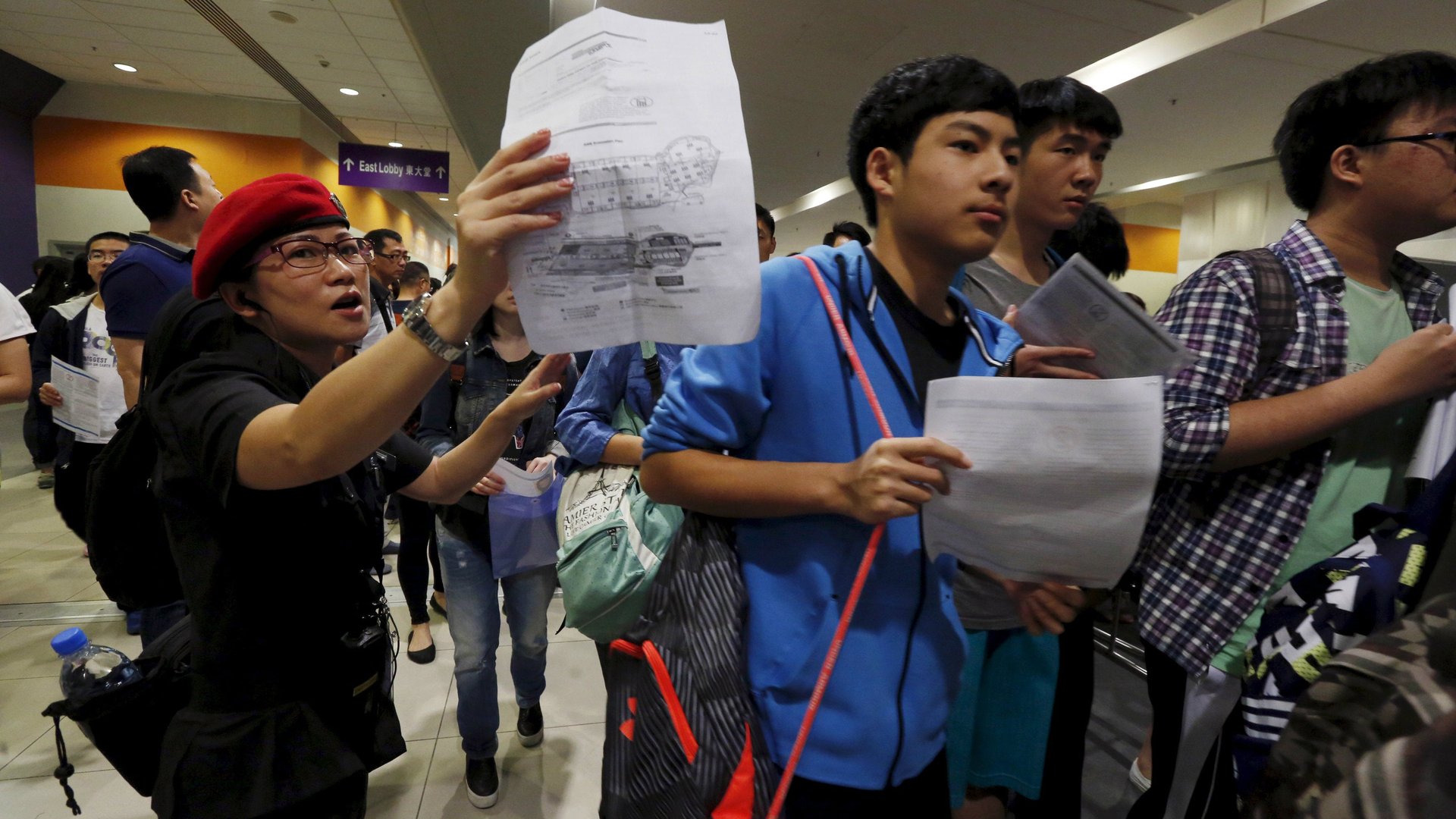“Cartel-like” test prep companies in China have created a massive cheating problem for the SAT
The SAT is facing a massive cheating problem that the test’s creators have allowed to fester.


The SAT is facing a massive cheating problem that the test’s creators have allowed to fester.
Two lengthy investigative articles from Reuters describe how the College Board, the non-profit organization that writes and distributes the SAT globally, has failed to prevent Asian SAT prep companies from getting answers to tests before they are administered. These students, many of them from China, then get high scores on the exam, which is a critical part of getting admitted to a US college.
Cheaters and their assistants can use a number of methods to peek at exam material, Reuters reports. Cram schools and students will corroborate and photograph images of a test. Sometimes test takers steal test booklets once the exam is over. Then the information is distributed online or through other test prep services.
The College Board’s cheating woes have largely been preventable—the organization has been recycling full tests or portions of tests given in the US to students overseas. Test takers in the states distribute questions and answers online, giving overseas students virtual, crowd-sourced cheat sheets at their fingertips. “What they should do, step one, is consider ending the practice of reusing test content,” Joy St. John, dean of admission at Wellesley College in Massachusetts, told Reuters.
Earlier this year, the College Board barred non-students from taking the test, cutting test counselors and other professionals from the exam, but there’s no guarantee students aren’t passing on answers, too.
The number of Chinese students attending university in the United States has increased nearly five-fold within the past 10 years, from 62,582 in 2006 to 304,040 in 2015, according to the Institute of International Education.
Many of these students are paying full tuition, which makes them desirable for cash-strapped American universities. International students also pay a fee to take the SAT that doubles the cost of the test.
In response to Reuters’ investigation, The College Board issued a statement on its website saying it faces ”cartel-like companies in China and other countries that will stop at nothing to enrich themselves,” but that it had not done enough.
The College Board is not perfect; we did our best with the information we had at the time. We can and should do more. In fact, we have recently taken more aggressive actions to secure the exam internationally, including canceling an administration in China. We continue to balance widening access with protecting the exam. We recently refused entry to the first administration of the redesigned SAT to a number of high-risk registrants — many of whom make a living violating security protocols. In the future, we will need to do even more.
Yet the statement does not address the issue of re-using test material. The College Board told Reuters it has no immediate plans to cease recycling tests from the US in overseas cities.